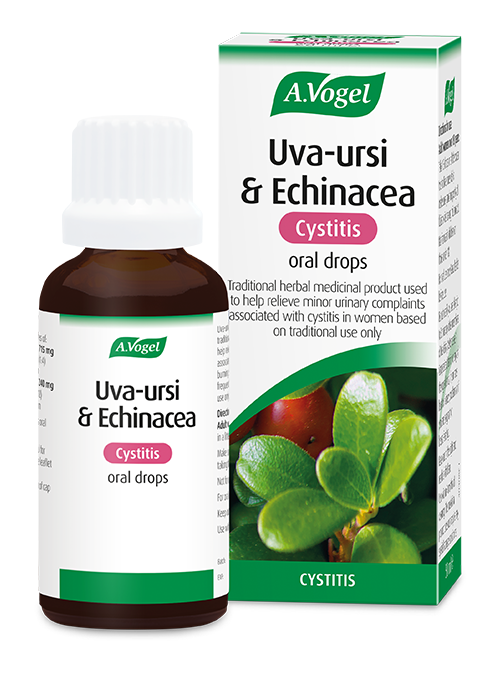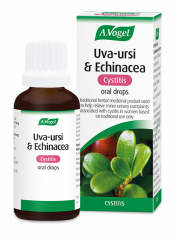Is there a connection between cystitis and gout?
Gout is a nasty inflammation of the joints which causes severe pain, redness and swelling – often in the toes and fingers. Cystitis, on the other hand, is the inflammation of the bladder which results in painful, frequent and urgent urination.
You might wonder how the two could possibly be related. And yet, a surprising number of people find that these two conditions tend to flare up at the same time. It's clear that there is some kind of link, but what is it?
What role does uric acid play in these conditions?
The link between gout and cystitis is revealed when we look a bit closer at what these two conditions are and, most importantly, what causes them.
Gout is a painful joint condition which, much like arthritis, causes painful, stiff and inflamed joints. When your body produces too much uric acid for the kidneys to properly filter, it sometimes ends up in the joints where it crystallises, causing irritation. This leads to inflammation, pain, and the condition we know as gout.
Cystitis is inflammation of the bladder, causing unpleasant symptoms like pelvic pain, a burning sensation when urinating and a frequent, sudden urge to urinate. It is usually caused by an infection, so for many people it is synonymous with the terms ‘UTI’, ‘urine infection’ and ‘bladder infection’. However, there are a number of other causes of inflammation such as irritation, and this irritation has several sources. One of these sources can be – you guessed it – excess uric acid!
In addition, a build-up of uric acid crystals can result in kidney stones, which can put pressure on the bladder and prevent urine from draining effectively from the bladder. In turn, this can potentially lead to an infection – the most common cause of cystitis.
So, as you can see, an excess of uric acid in the blood stream can cause both of these conditions. It is not that gout causes cystitis, or the other way around, but that they can both be caused by the same thing. So, if you are experiencing one of these conditions, the other may not be far behind.
Is age also a factor?
One final thing to consider is the relationship between age and these conditions. For the ladies, you are most likely to develop gout in your menopausal and post-menopausal years - remember that cystitis is also often a symptom of the menopause and post-menopause!
For the men, you are most likely to develop gout between the ages of 40 and 50, and this is also the age when prostate enlargement can begin to cause problems – in particular with urination. This can cause similar symptoms to cystitis, such as a frequent, urgent need to pee and needing to pee during the night. A quick trip to your GP is important in these instances, to give you an accurate diagnosis.
So, in some cases, gout and cystitis can be connected because an excess of uric acid can cause both. But, in other cases, these conditions merely surface at the same time because of the natural ageing process!
So what can you do about these conditions?
So, you may be more likely to get cystitis if you suffer from gout, and vice versa. But what can you do?
- Strengthening your kidney function. This is vital for effectively filtering uric acid out of the blood stream. Herb complexes like our Golden Rod tea are great at promoting healthy kidney function.
- Boost your water intake. This means the kidneys are not dealing with very concentrated levels of toxins, and it also means that the urine in your bladder will be more diluted, with a lower concentration of uric acid.
- Avoid sugary drinks and alcohol. These pro-inflammatory drinks are linked to both cystitis and gout.
- Try Devil's Claw. By working to reduce inflammation, this can help to ease painful joints associated with gout.
Can food make cystitis and gout worse?
Your diet is a major source of uric acid, which is produced when substances called purines are broken down. If possible, avoid foods high in purines, including:
- Red meat
- Game
- Fish
- Spinach
- Asparagus.
You should also boost your intake of fresh fruit and veg, and make sure to eat plenty of complex carbohydrates, such as:
- Brown rice and brown bread
- Quinoa
- Sweet potato
- Wholemeal flour.
You can read more about cystitis and diet in our blogs, and we have lots of information about gout and diet too.
Written on 22/09/2016, updated on 22/11/2019.
Vote
Results: Which symptom do you experience with cystitis most often?
50% said either joint pain or back pain was the most common symptom occurring alongside cystitis. As I have explained, these issues can all be caused by inflammation, which is why you may find that they occur together.










